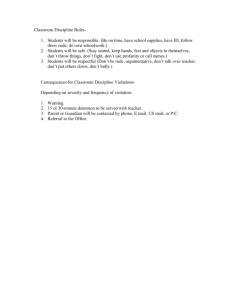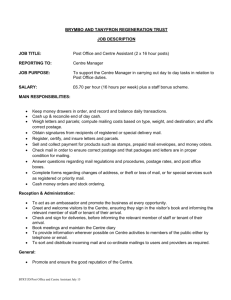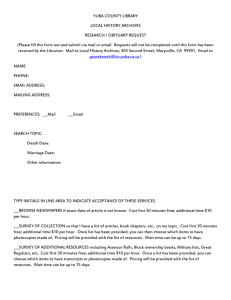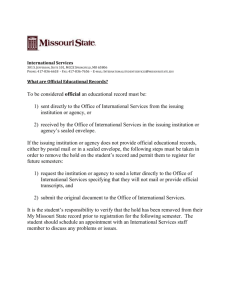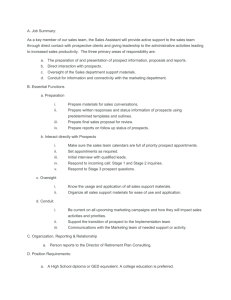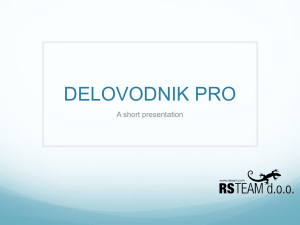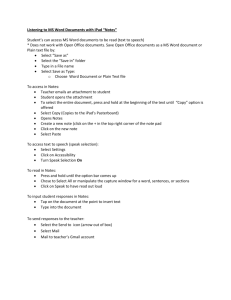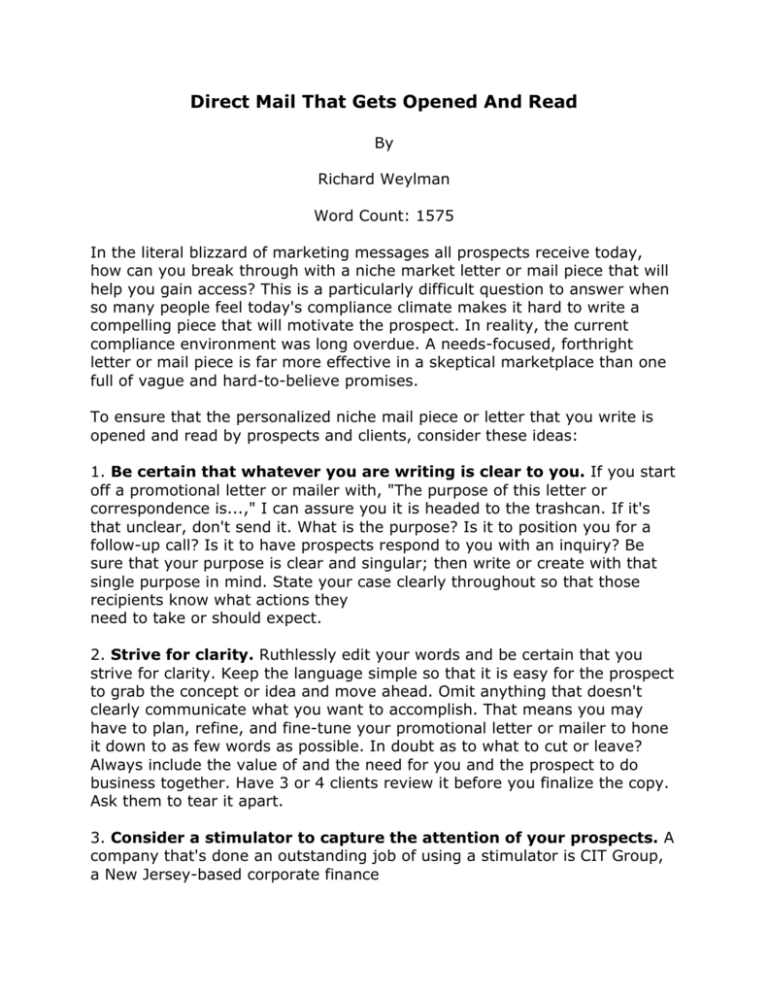
Direct Mail That Gets Opened And Read
By
Richard Weylman
Word Count: 1575
In the literal blizzard of marketing messages all prospects receive today,
how can you break through with a niche market letter or mail piece that will
help you gain access? This is a particularly difficult question to answer when
so many people feel today's compliance climate makes it hard to write a
compelling piece that will motivate the prospect. In reality, the current
compliance environment was long overdue. A needs-focused, forthright
letter or mail piece is far more effective in a skeptical marketplace than one
full of vague and hard-to-believe promises.
To ensure that the personalized niche mail piece or letter that you write is
opened and read by prospects and clients, consider these ideas:
1. Be certain that whatever you are writing is clear to you. If you start
off a promotional letter or mailer with, "The purpose of this letter or
correspondence is...," I can assure you it is headed to the trashcan. If it's
that unclear, don't send it. What is the purpose? Is it to position you for a
follow-up call? Is it to have prospects respond to you with an inquiry? Be
sure that your purpose is clear and singular; then write or create with that
single purpose in mind. State your case clearly throughout so that those
recipients know what actions they
need to take or should expect.
2. Strive for clarity. Ruthlessly edit your words and be certain that you
strive for clarity. Keep the language simple so that it is easy for the prospect
to grab the concept or idea and move ahead. Omit anything that doesn't
clearly communicate what you want to accomplish. That means you may
have to plan, refine, and fine-tune your promotional letter or mailer to hone
it down to as few words as possible. In doubt as to what to cut or leave?
Always include the value of and the need for you and the prospect to do
business together. Have 3 or 4 clients review it before you finalize the copy.
Ask them to tear it apart.
3. Consider a stimulator to capture the attention of your prospects. A
company that's done an outstanding job of using a stimulator is CIT Group,
a New Jersey-based corporate finance
company. They were having trouble reaching senior executives in their
tightly focused niche markets. They decided to spend a significant amount of
money to gain the attention of the executives in a unique way. By sending
Stan Musial-autographed baseballs and, in some
cases, Willie Mays-autographed balls, they have really differentiated
themselves and stimulated their prospects. Most importantly, 93 percent of
the 350 executives they contacted agreed to see the CIT sales
representative. This has allowed CIT to write a great
deal of business because they gained access through a unique promotion
that says, "We value the opportunity to meet with you and we're willing to
earn the right." Stimulators typically work when they are either expensive or
unique. They must capture attention, not appear to be a gimmick. Test any
stimulator before you think about widespread use.
4. Whenever you write to someone, make sure you address him or
her personally. I received a note from a cellular sales representative who
was prospecting for new business. The preprinted note was a very nice wellmade card and on highly-quality paper. It had "Hello" preprinted on the
front, and inside I was addressed by my company name--that is, "Dear
Achievement Group, Inc." Admittedly, Weylman is hard to spell and harder
to know how to pronounce (While-men). However, this was better than Dear
Occupant. The note
went on to say that she was a sales rep and that she would give me $40
towards the purchase of cellular equipment or air time. I didn't take
advantage of her offer. I bought from another company whose
representative had a more personal approach--they wrote to me and used
my own name. If you don't know the name of the individual, pick up the
telephone, call the person's office, get the name, and make sure that you
address him or her personally in the salutation and on the envelope.
5. Use their language to personalize your mail. Speak the prospect's
language in every promotional letter and mailer that you create. This
develops a sense in recipients' minds that you know them, you understand
them, and you can truly identify with them. Use words that grab prospects'
attention because the words are in their vocabulary and they are used on a
day-to-day basis. As an example, when you're writing to doctors, use the
word practice, not
business. Ad agency heads want creative ideas. Attorneys would respond to
words such as precedent and antecedent. Using their words also
demonstrates respect for who they are and they, in turn, will respect you
more.
6. Keep letters brief and to the point. Any letter that you send to
position a request for an appointment should generally be no more than six
or seven sentences in length. Let your prospects know you specialize in their
niche. Capture their attention by suggesting at least
two important benefits that could be of interest to them. Then quickly
expand into one or two product or service features that can support the
benefits you mentioned. This way readers can better understand what you're
trying to meet with them about. Then ask for the
appointment.
7. To get your mail opened, avoid labels, window envelopes, or dotmatrix printing. If you use envelopes with a window or with a label, it is
almost always defined as junk mail. Further, our research has shown that
handwriting should be used only for sending mail to a
residence or sending a personal note to a prospect or customer. However, in
all cases, a typed or laser-printed envelope is much more likely to be opened
when it lands on the desk or kitchen counter. There has been some
argument recently that using clear laser labels on
business envelopes can take the place of having them individually
processed. However, the clear label is not yet indistinguishable. It's still
perceived as a label. Of course, mail such as postcards, self-mailers, or
oversized shipping envelopes could take a label without any image cost. For
these pieces, you may want to use the clear mailing label so that it doesn't
look so promotionally oriented. For oversized envelopes, a shipping label
works well. Otherwise, avoid them to get your mail opened.
8. Avoid putting "Personal and Confidential" on the envelope. Usually,
this phrase is used to get past a secretary or assistant who is screening the
mail. Stamping enveloped "Personal and Confidential" is overused and has a
large pitfall. It detracts from your credibility if you
use these words and the reader determines that the contents are neither
personal nor confidential. If you're trying to get mail on the prospect's desk,
stamp "Private Please" on the face of the envelope. It will have the same
effect; however, it will not erode your credibility or your integrity.
9. Use commemorative stamps. If you observe the administrative people
in your offices, you will notice that they usually sort stamped mail first.
Commemorative stamps create the perception that this piece of mail is very
personal. For that reason, they usually end up on the very top of your
prospects' incoming mail. Using commemorative stamps increases the
likelihood your prospects will see, open, and read your promotional mail.
10. Write "Hand Deliver" on the face of your envelope to get special
treatment of your mail. Of course, all mail is hand-delivered. However,
our experience has proven that your niche mail will get special treatment. I
even know of cases where interoffice mail so marked gets delivered
separately from all the rest.
Finally, let your call volume dictate mail volume. Decide how many people in
your niche market you want to talk to in any given week before you send out
your first piece. Then send only enough pieces so that you can follow up and
reach these people. By following through and keeping your promise that you
will call them and speak with them you improve your credibility with your
prospects. Nothing is worse than a mailer opened and read that promises a
contact that never comes.
C. Richard Weylman is an expert in marketing, selling and communicating to
affluent and high net worth people. He is the author of "Opening Closed
Doors, Keys To Reaching Hard-to-Reach People," as well as numerous sales,
relationship and marketing and management audio and video education
programs. To discover the many resources he has to offer you and your
organization, including his speaking topics, free weekly marketing tips
(emailed to you), free articles and much more, go to
www.richardweylman.com or call 1-800-535-4332 to schedule Richard to
speak at your next event.
CopyrightC 2002, Richard Weylman. All right reserved. Richard Weylman,
CSP, serves as President of The Achievement Group, Inc., an Florida-based
consulting firm dedicated to professionally and ethically help people move to
the next level o f productivity and fulfillment. He is the author of "Opening
Closed Doors, Keys to Reaching Hard-to-Reach People" and numerous other
sales, relationship marketing and management audio and video programs.
To receive more ideas and insight on how to market to high net worth
people, recruit quality people, or practice management issues, schedule
Richard to speak at your next meeting, contact the FrogPond at
800.704.FROG(3764) or email susie@FrogPond.com

